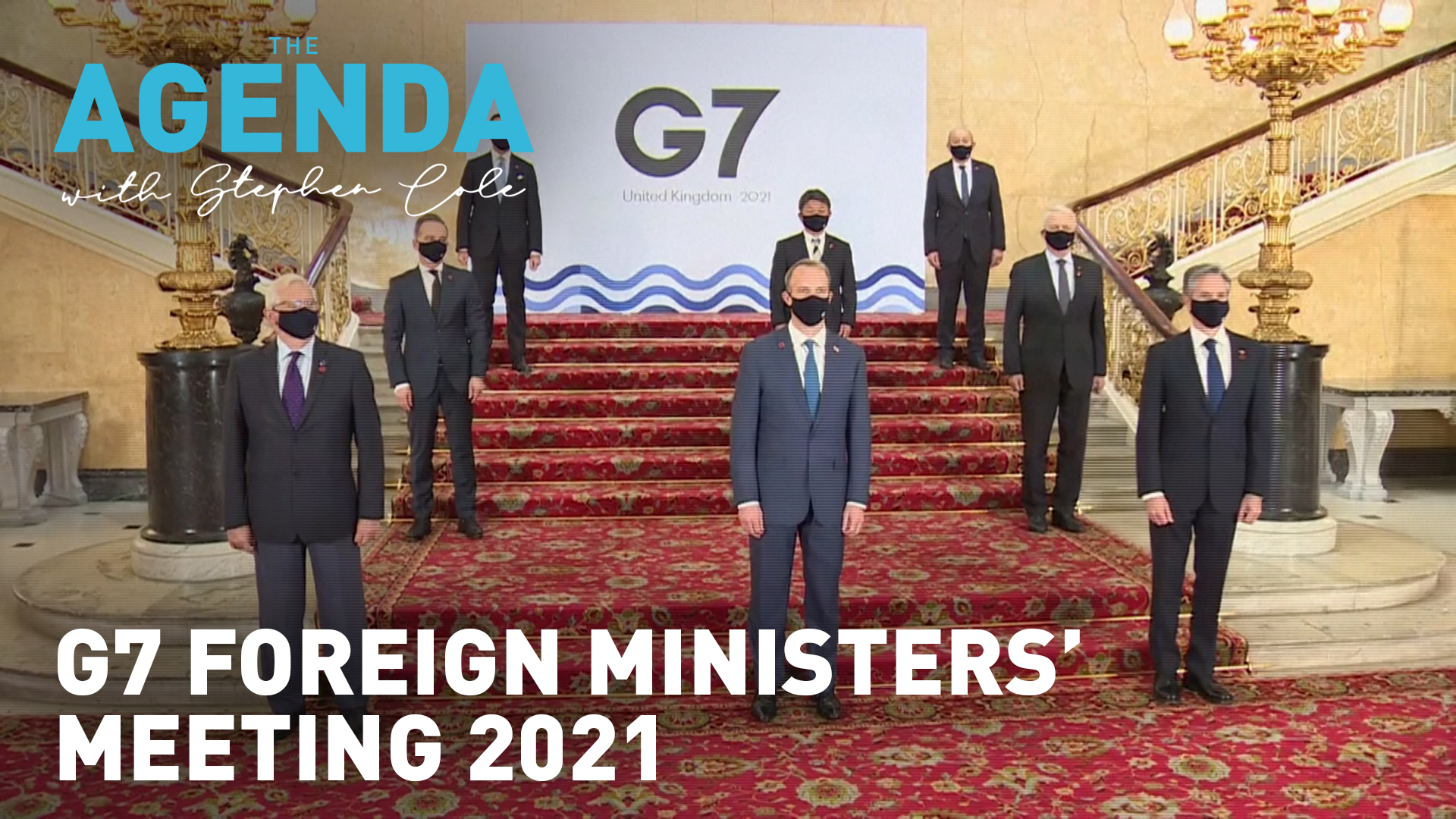10:04

WHAT'S THE ISSUE?
The foreign ministers of the G7 nations have now held their first face-to-face meeting for more than two years – restricted to virtual meetings by the COVID-19 pandemic.
So what exactly was discussed? And, perhaps more importantly, what does it suggest will be top of the agenda when the leaders of the UK, the U.S., Germany, France, Canada, Italy and Japan hold their summit in Cornwall, England on June 11?
Foreign policy expert Michael O'Hanlon from Washington DC's Brookings Institution joins Stephen Cole to give his opinion.

MEET THE EXPERT
Michael O'Hanlon is a senior fellow and director of research in foreign policy at the Brookings Institution. He co-directs the Center for Security, Strategy, and Technology; the Defense Industrial Base working group; and the Africa Security Initiative within the Foreign Policy program, as well.
He is also a member of the International Institute for Strategic Studies. O'Hanlon was also a member of the external advisory board at the Central Intelligence Agency from 2011-12 and was an analyst at the Congressional Budget Office from 1989 to 1994.

WHAT DOES O'HANLON SAY?
O'Hanlon tells Cole he's glad the response to COVID-19 was seemingly top of the agenda but remains concerned that still not enough is being done.
"The advanced economies are not doing enough on improving access to vaccines globally. We are spending trillions of dollars in the major economies to stimulate our own recovery, and we can certainly afford to spend low tens of billions on vaccine availability for everyone, he says.
He adds, though, that in spite of criticism of the decision to hold the meeting face-to-face, especially in light of the positive COVID-19 tests of two of the delegation from India, it was the right approach.
"I think that we have to start to move beyond a mentality where the only overriding priority is to prevent a small risk of transmission among vaccinated people.. there are reasons why we build networks, why leaders talk to each other face to face, why there are summits and G7 and why trust and communication need to be established," he explains.


WHAT'S NEXT?
Next up, of course, is the G7 leaders' summit in Cornwall on June 11. And for those expecting U.S. President Joe Biden's first overseas visit to be a blockbuster – they could be in for a disappointment.
"I would be inclined to say that the Biden team is going to be cautious on most issues, with the possible exception of COVID. I think President Biden's made it clear that his priorities are primarily domestic and COVID-19 related," says O'Hanlon.
"Bigger ideas on climate or bigger ideas on future security architecture for Europe… I think those kinds of ideas will have to wait a while."

